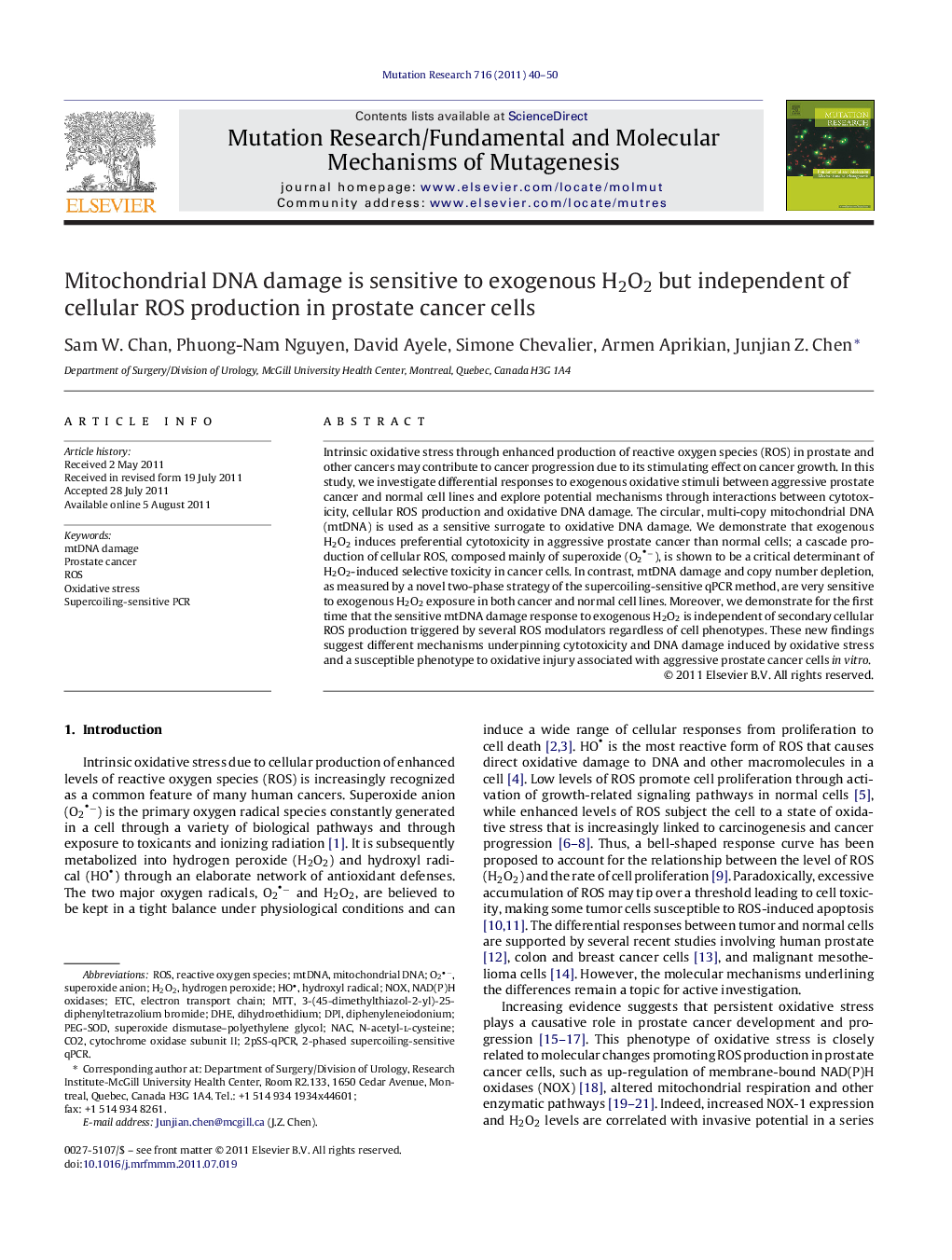| کد مقاله | کد نشریه | سال انتشار | مقاله انگلیسی | نسخه تمام متن |
|---|---|---|---|---|
| 2146585 | 1548358 | 2011 | 11 صفحه PDF | دانلود رایگان |

Intrinsic oxidative stress through enhanced production of reactive oxygen species (ROS) in prostate and other cancers may contribute to cancer progression due to its stimulating effect on cancer growth. In this study, we investigate differential responses to exogenous oxidative stimuli between aggressive prostate cancer and normal cell lines and explore potential mechanisms through interactions between cytotoxicity, cellular ROS production and oxidative DNA damage. The circular, multi-copy mitochondrial DNA (mtDNA) is used as a sensitive surrogate to oxidative DNA damage. We demonstrate that exogenous H2O2 induces preferential cytotoxicity in aggressive prostate cancer than normal cells; a cascade production of cellular ROS, composed mainly of superoxide (O2−), is shown to be a critical determinant of H2O2-induced selective toxicity in cancer cells. In contrast, mtDNA damage and copy number depletion, as measured by a novel two-phase strategy of the supercoiling-sensitive qPCR method, are very sensitive to exogenous H2O2 exposure in both cancer and normal cell lines. Moreover, we demonstrate for the first time that the sensitive mtDNA damage response to exogenous H2O2 is independent of secondary cellular ROS production triggered by several ROS modulators regardless of cell phenotypes. These new findings suggest different mechanisms underpinning cytotoxicity and DNA damage induced by oxidative stress and a susceptible phenotype to oxidative injury associated with aggressive prostate cancer cells in vitro.
► A novel two-phased qPCR for precise detection of mtDNA structural damage and content change.
► Exogenous H2O2 induces preferential cytotoxicity and cellular ROS in prostate cancer cells.
► Sensitive mtDNA damage induced by exogenous H2O2 is prevalent in both cancer and normal cells.
► Cellular ROS production is cytotoxic but no effect on mtDNA damage in both cell types.
► Independent mechanisms underpin cytotoxicity and mtDNA damage in oxidative injury.
Journal: Mutation Research/Fundamental and Molecular Mechanisms of Mutagenesis - Volume 716, Issues 1–2, 1 November 2011, Pages 40–50